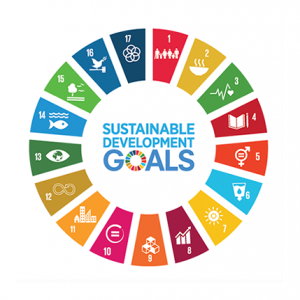ESD Skills and Methods
Wider aspects of sustainability learning
Alongside looking at the 17 SDGs, you could explore how wider aspects of sustainability learning are incorporated in modules. These aspects include:
Understanding Sustainable Development: Covers a holistic understanding of sustainable development within the context of the subject
Seeing the Bigger Picture: Students develop systems thinking or futures thinking skills, helping them to critically engage with and understand the bigger picture.
Ethics and Values: Students use or apply an ethical framework in relation to their subject.
Collaborative Problem Solving: Students work together with others to address a real-world issue.
Critical Thinking Skills: Students learn skills to help them analyse and critique information.
Challenge Business as Usual: Students encounter different-paradigm ways of thinking, e.g. circular economy in field of design; doughnut economics in business, or directly experience a different paradigm (e.g. via a study trip).
Take Real-World Action: Students have a chance to take real-world action to support sustainable development (through activities with real-world impacts done through the course, such as placement or project). Not just using real-world problems to trigger thinking.
ESD Methods
You could also consider the inclusion of ESD methods in teaching and learning. These methods include:
Case studies: Real-life examples of sustainable development issues – from local to global – and how these have been, or might be, addressed, introduce students to the concept of sustainability in practice.
Stimulus activities: Providing a prompt (such as a poem, dance, artwork, quotation, piece of music or newspaper article) can stimulate discussion or reflection on a sustainability topic. Stimulus activities are well suited to group work and can be open-ended, encouraging students to extend their thinking beyond the confines of their own discipline.
Simulation: Activities and projects that simulate real-life situations and encourage students to participate can help develop focused thinking around sustainable development issues, and can contribute to the formation of students’ own attitudes and the social norms that they find acceptable. Such activities include role plays, debating, mock trials and gaming, and they can be used across a range of disciplinary and interdisciplinary contexts to help students develop appropriate professional behaviours.
Experiential project work: Experiential, interactive, or participatory activities enable students to engage with sustainability issues at a number of levels, not only in relation to their discipline, but also in terms of reflecting on their own values, attitudes and accepted social norms. Working through issues in an authentic setting is also valuable for identifying potential interdisciplinary or transdisciplinary links.
Problem-based learning: Problem-based learning approaches can be used to good effect in teaching and learning about sustainability, since they provide opportunities for student-led, collaborative work which can be focused on a real-world problem or issue
